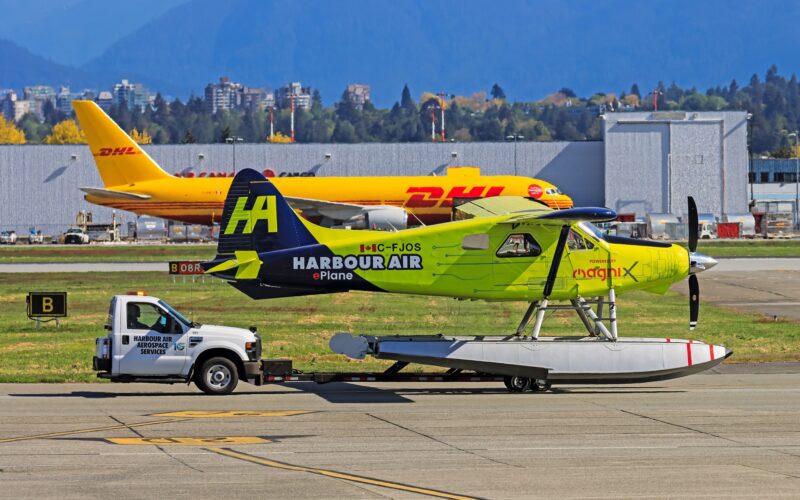Harbour Air provided an update on its progress on the certification of the ePlane, a De Havilland Canada DHC-2 Beaver converted to be powered by electricity.
The Canadian regional airline stated that over the past few months, the process to certify the installation of components into the ePlane “has been difficult”, especially since there has been no prior certification process. Since the electrified small aircraft is using “novel engine and battery technology”, as well as there have been difficulties in “incorporating the elements of software and electronic control systems”, there have been significant delays in the program.
“Fundamentally, the technology has been outpacing the regulators,” noted the company. “As such, assumptions were made to continue developing which can result in risk of misinterpretations from regulators.”
Harbour Air pointed out the loss of power control (LOPC) as an example, as assumptions were made that an electric engine is equal to “a reciprocating engine when it comes to system safety analysis and single fault tolerance” in an LOPC scenario.
As such, regulators “will require a system safety analysis for a single electric engine installation to meet the reliability requirements, and that it must be single fault tolerant to an LOPC event,” said the Canadian carrier, adding that regulators will provide an update on the definition of “what LOPC means for an electric engine later this month”.
“Considering the regulators have spent a year determining how LOPC applies to an electric engine, the result means that many companies working in this sector are revisiting their architecture to meet this requirement. Furthermore, given the ongoing supply chain issues with electronic components, changing what was thought to be a frozen design, comes with significant delays,” continued Harbour Air’s statement.
Next steps for the ePlane
The airline pointed out the next steps for the ePlane and magniX, the manufacturer of the electric engine.
Firstly, the electric engine will be changed from the magni350 to the magni650, allowing the aircraft to meet LOPC requirements. Secondly, Harbour Air and magniX will review the engine and battery systems for them to meet higher reliability requirements, with plans to build a “ground running certification prototype” in 2024, meaning that the ePlane 2.0 will also fly in 2024.
“The regulators do not expect to achieve harmonization on the battery requirements until late 2024, which means certification of battery components will occur in 2025,” said the airline, also adding that the certification of the magni650 is expected to be done in mid-2025. Subsequently, the certification to install the engine on the eBeaver is projected to happen after the certification of the electric engine.
Harbour Air will continue using the ePlane 1.0 “to fly and provide valuable data for the team on the effects on flight handling qualities and operational considerations”. So far, the company has completed 70 test flights, allowing it to better understand the “behaviour, advantages, and limitations of a fully electric system, allowing us to determine certification compliance items”.
The ePlane 1.0 visited downtown Vancouver, British Columbia (BC), Canada, on April 22, 2023. On May 5 and 6, 2023, Harbour Air will participate in Electrify Salt Spring, while on May 7 and May 8, 2023, the electrified DHC-2 Beaver will appear at the Victoria Harbour in Victoria, BC, Canada.
Harbour Air announced its plans to electrify its fleet in April 2019, as it would be converting over 40 of its aircraft to be powered by electric propulsion systems. Following the successful first flight of the ePlane in December 2019, the airline then said that “the aircraft is currently undergoing the certification and approval process with the FAA [United States Federal Aviation Administration – ed. note] and Transport Canada”.

